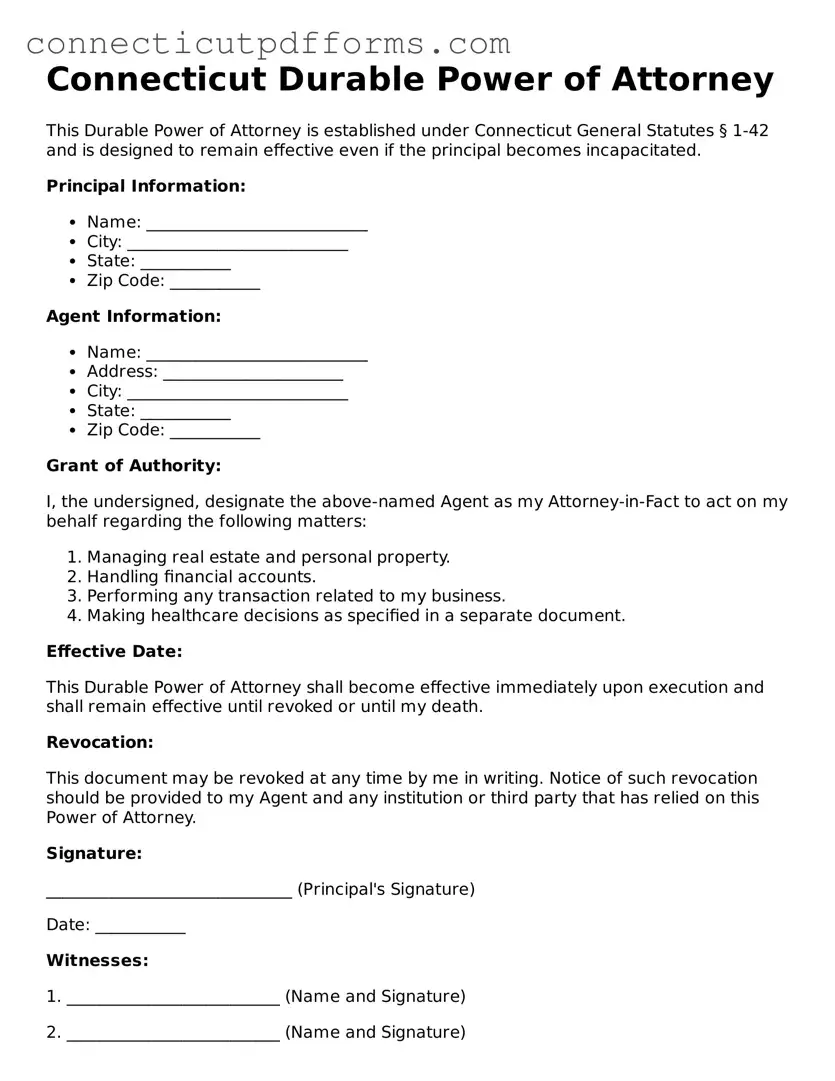Fillable Durable Power of Attorney Form for Connecticut
A Connecticut Durable Power of Attorney is a legal document that allows you to appoint someone to make decisions on your behalf if you become unable to do so. This form ensures that your financial and legal matters are managed according to your wishes, even if you are incapacitated. Understanding its importance can help you secure peace of mind for yourself and your loved ones.
Ready to take the next step? Fill out the form by clicking the button below.
Launch Editor Now

Fillable Durable Power of Attorney Form for Connecticut
Launch Editor Now
Finish the form without slowing down
Edit your Durable Power of Attorney online and finish with a quick download.
Launch Editor Now
or
▼ Durable Power of Attorney PDF Form
